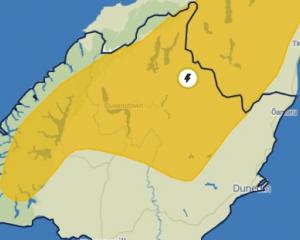
Wayne Mapp was Defence Minister at the time of the raids in Baghlan province in 2010 and was briefed both before and after the SAS operations.
In a lengthy post on the Pundit website published today, Mr Mapp said he has no doubt New Zealand soldiers acted to the highest ethical standards.
However, from briefings provided to him after the 2010 raids he knew the operation - called Operation Burnham - had not achieved its stated aims of arresting or ``otherwise dealing with'' the insurgents leading Taliban operations against the provincial reconstruction team.
Hit & Run by journalists Jon Stephenson and Nicky Hager claim six civilians were killed and 15 were injured in the raids. The NZDF says nine insurgents died and there may have been civilian casualties after a misfiring gun on a US helicopter sprayed a building.
Hit & Run asserted Mr Mapp had described the raids as a ``fiasco'' - although did not quote him - and after its release he confirmed he had used those words.
In the essay published today, Mr Mapp said his role as Defence Minister meant he also knew people had been killed during Operation Burnham, and these were people acting as insurgents.
However, after he had retired from politics he saw a documentary by Stephenson broadcast by Maori TV in 2014, and said it became clear it was possible there were other casualties from the raids, including a three year-old girl, named in Hit & Run as Fatima.
Mr Mapp confirmed he had previously been interviewed by Stephenson and he ``told me enough about what had happened for it to be believable...even if it was not fully proven''.
''The law of armed conflict accepts that civilian casualties might occur in military operations, and in many cases there is no legal liability for them, particularly if they were accidental,'' Mr Mapp wrote on Pundit.
''But for New Zealand, is that the end of the matter? Do we hold ourselves to a higher standard? For me, it is not enough to say there might have been civilian casualties. As a nation we owe it to ourselves to find out, to the extent reasonably possible, if civilian casualties did occur, and if they did, to properly acknowledge that.''
Stephenson and Hager, Labour, the Green Party, New Zealand First and United Future have all called for an inquiry into the allegations in Hit & Run, as have lawyers acting for Afghani villagers.
Mr Mapp said in his view getting to the bottom of the allegations did not necessarily require an independent investigation.
Rather, information was most likely to be forthcoming through diplomatic approaches to the Afghan government and non-government organisations on the ground in Afghanistan.
Despite the New Zealand Defence Force maintaining Hit & Run contained major inaccuracies including the location of the raids - and Hager and Stephenson's subsequent admission the location given for the villages in the book was incorrect - Mr Mapp said the accounts of the NZDF and the two journalists were reconcilable.
That was because NZDF had now recognised that civilian casualties may have occurred.
Mr Mapp concluded his essay by saying New Zealanders have good reason to be proud of the professionalism of its defence forces.
''The SAS are among the most highly trained and respected soldiers in the world. In our name, we ask them to undertake the most hazardous military missions, often deep within enemy held territory. They have an absolute right to defend themselves against attack. The risk of capture of our soldiers by the Taliban would be beyond contemplation.
''Part of protecting their reputation is also finding out what happened, particularly if there is an allegation that civilian casualties may have been accidentally caused. In that way we both honour the soldiers, and also demonstrate to the Afghanis that we hold ourselves to the highest ideals of respect of life, even in circumstances of military conflict.''












